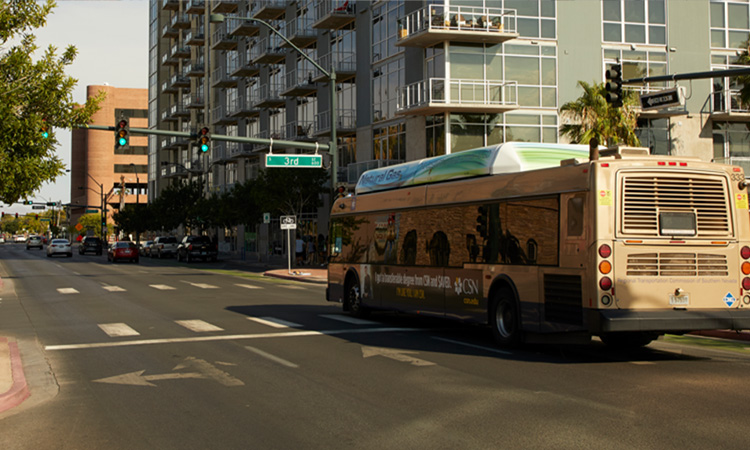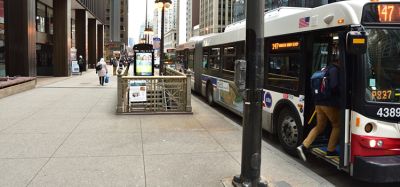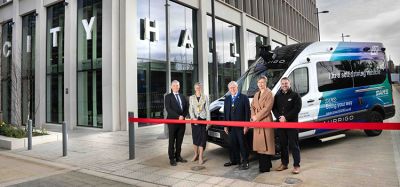RTC Southern Nevada awarded $2 million for smart traffic optimisation
- Like
- Digg
- Del
- Tumblr
- VKontakte
- Buffer
- Love This
- Odnoklassniki
- Meneame
- Blogger
- Amazon
- Yahoo Mail
- Gmail
- AOL
- Newsvine
- HackerNews
- Evernote
- MySpace
- Mail.ru
- Viadeo
- Line
- Comments
- Yummly
- SMS
- Viber
- Telegram
- Subscribe
- Skype
- Facebook Messenger
- Kakao
- LiveJournal
- Yammer
- Edgar
- Fintel
- Mix
- Instapaper
- Copy Link
Posted: 18 April 2023 | Intelligent Transport | No comments yet
The $2 million federal funding will allow RTC SNV to prototype a cloud-based traffic system that optimises traffic signal timing to support emergency vehicles and buses in Las Vegas, improving intersection safety and efficiency.


Credit: Regional Transportation Commission of Southern Nevada
The Regional Transportation Commission of Southern Nevada (RTC SNV) has announced that it will receive $2 million in federal funding as part of the U.S. Department of Transportation’s (USDOT) inaugural Strengthening Mobility and Revolutionizing Transportation (SMART) grant programme to advance transportation safety and efficiency.
The funding will support an RTC SNV project that will prototype a cloud-based system that optimises traffic signal timing to support emergency vehicles and buses, as well as artificial intelligence (AI) analytics at intersections within the City of Las Vegas. First responders, transit riders and road users will benefit from the implementation of these innovative technologies, which will improve intersection safety and efficiency, as well as reduce travel times for emergency response and transit vehicles.
Emergency vehicle pre-emption and AI intersection analytics will be studied in an area that encompasses downtown Las Vegas and the Las Vegas Medical District. The area includes six fire station service areas and the University Medical Center, which is the only Level 1 Trauma Center in the State of Nevada.
Emergency vehicle pre-emption adjusts the timing of traffic lights at intersections to provide priority to approaching emergency vehicles, allowing them to pass safely and quickly. While emergency vehicle pre-emption is not new, technological advancements have safer and more reliable systems with improved response times for emergency responders and those that they are serving. A cloud-based emergency vehicle pre-emption system will allow for a deployment that does not require the installation of extra in-vehicle hardware or traffic signal equipment.
RTC Southern Nevada receives $1.68 million to create action plan for safer roads
In addition, intersection analytics will use video from the cameras along with advanced computing through AI to monitor traffic conditions and movements at intersections to collect data related to safety concerns, such as near-misses and red-light running. This information is fed into the software platform and will help RTC SNV and the City of Las Vegas better understand potentially unsafe driving patterns and develop specific proactive measures.
Furthermore, transit signal priority, which will be tested along a portion of Charleston Boulevard, will detect approaching buses and may extend the green time to help them get through signalised intersections. This corridor is ideal for transit signal priority testing, as it includes RTC SNV transit route 206, which has the third highest ridership in the region with more than 4.1 million trips in 2019. Implementing transit signal priority in a key transit corridor will allow vehicles to better adhere to the route schedule and improve reliability, ultimately making transit services more dependable for current riders and attractive to potential customers.
“The RTC is committed to engaging in innovative ways to improve transportation efficiency and safety on our roadways,” said RTC SNV CEO M.J. Maynard. “This funding secured by our federal delegation will allow us to prototype a smart traffic signal programme that will support improved emergency vehicle response times, faster transit service and improved safety on our roads through artificial intelligence.”
The pilot project is expected to take approximately 18 months to complete. An additional $1 million in funding is being allocated by RTC SNV to ensure that the scope of this first phase can be expanded in the future on a regional level across Southern Nevada.
If you liked this, you may also be interested in:
▶ Dubai’s RTA launches second phase of Smart Pedestrian Signals project
▶ DfT announces nearly £50 million funding for safer roads across England
Related topics
Artificial Intelligence, Public Transport, Traffic Management, Vehicle & Passenger Safety
Related modes
Bus & Coach
Related cities
Las Vegas
Related countries
United States
Related organisations
Regional Transportation Commission of Southern Nevada (RTC)
Related people
M.J. Maynard








